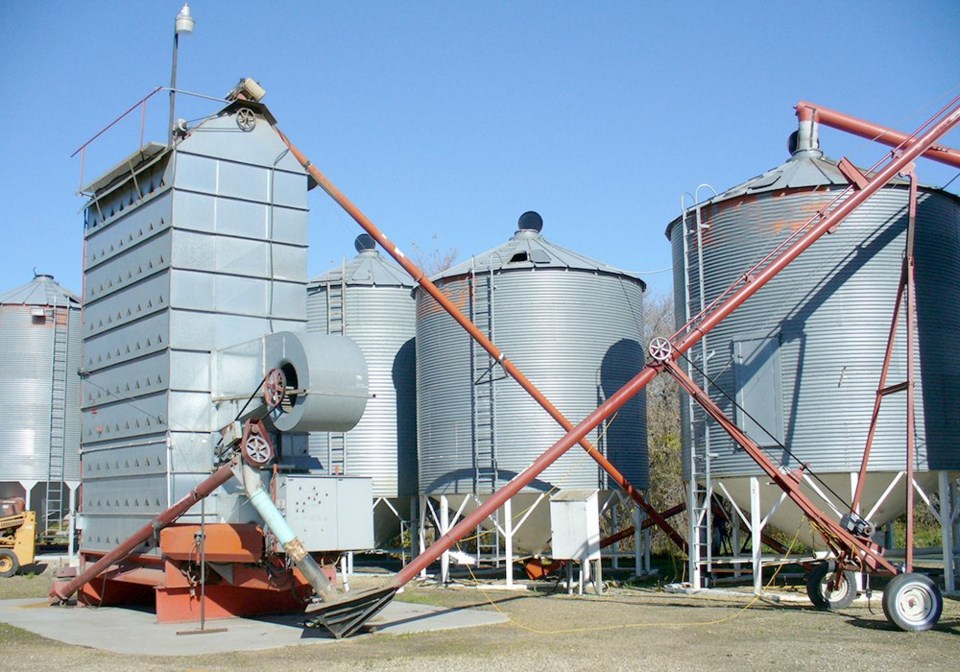OTTAWA, Ont. — Carbon price exemptions, rather than rebates, would help farmers invest in more energy-efficient and sustainable practices, witnesses told the standing committee on agriculture.
The committee has resumed its study of Bill C-234, which would amend federal legislation to exempt propane and natural gas from carbon pricing if used to dry grain or heat barns and other facilities. Parliament passed a previous version of the private member’s bill, C-206, but it did not make it through the Senate before the 2021 election was called.
However, the Liberal government did pass C-8 earlier this year, which provides rebates on carbon tax paid to dry grain. A finance official earlier told the committee the average rebate would be about $820.
The Agriculture Carbon Alliance, representing 15 organizations across the industry and about 190,000 farmers, spoke to the committee earlier this month and said exemptions are the best option.
“Unfortunately, the carbon price rebates for farmers contained in Bill C-8 do not adequately respond to the breadth and variety of carbon surcharges applied to farms,” said co-chair Scott Ross, who is also executive director of the Canadian Federation of Agriculture. “Bill C-234 would provide a complete exemption for essential activities that lack viable alternatives and leaves the money in farmer’s pockets to make timely investments in their operations.”
Ross said the ACA views the bill as “tidying up” exemptions that should have been put in place from the start, when on-farm use of diesel and gasoline was exempted.
Access to working capital is important so they can invest in innovations and remain competitive, he said.
Jasmin Guenette, vice-president of national affairs at the Canadian Federation of Independent Business, said the 6,000 agricultural members of that organization are not optimistic about their industry. In a survey they cited rising costs, supply chain issues, bureaucratic and regulatory red tape, labour shortages and connectivity concerns.
The survey found 82 percent of respondents said federal carbon pricing had a negative impact on their business, Guenette said. The cost reduces their ability to invest in technology that reduces emissions, he said, and exemptions are “crucial.”
The federal pollution pricing applies in provinces without their own program, including the three prairie provinces.
In Quebec, which has a cap-and-trade carbon system, the grain producers’ association calculated the costs of propane for its 9,500 farmers.
General manager Benoit Legault said a typical farm would include about 500 acres of corn and 500 acres of soybeans. The fuel cost has risen from $60,000 in 2019 to $108,000 in 2022.
“Propane accounts for nearly 60 percent of energy costs for corn and seven percent for soybeans. At over $36,000 per year for a typical farm, propane is therefore a significant energy cost item,” he said.
Legault said under the cap-and-trade system the most recent offers had been between $25 and $78 per tonne of carbon, for an average of $40. The federal tax is $50 and rising.
“Quebec carbon credits mean a carbon cost of over $9,000 for a farm, of which nearly $4,000 is associated with propane. Should the cost of carbon in Quebec follow the trend of the federal tax, these carbon costs would rise to $38,000 and $16,000, respectively, in the specific case of propane,” he said.
Legault added that grain drying is an essential operation and there is no other cost-effective energy available.
Several witnesses said using electricity to dry grain would be cheaper but would require three-phase power throughout grain-drying regions.
“Electrification is a massive discussion and a massive undertaking,” said ACA co-chair Dave Carey, from the Canadian Canola Growers Association.
Bloc Quebecois MP Yves Perron asked how, if the exemption is passed, the signal to reduce emissions would be maintained.
Carey said the pricing signal already exists.
“To be clear, even if Bill C-234 were passed, farmers are not made whole from carbon pricing,” he said, because they pay it on trucking, freight, inputs, and other costs, and the exemption is for on-farm use.
The committee also discussed the possibility of including a sunset clause on the exemptions. Witnesses said that type of clause would have to be long-term to ensure new technology can be developed.





